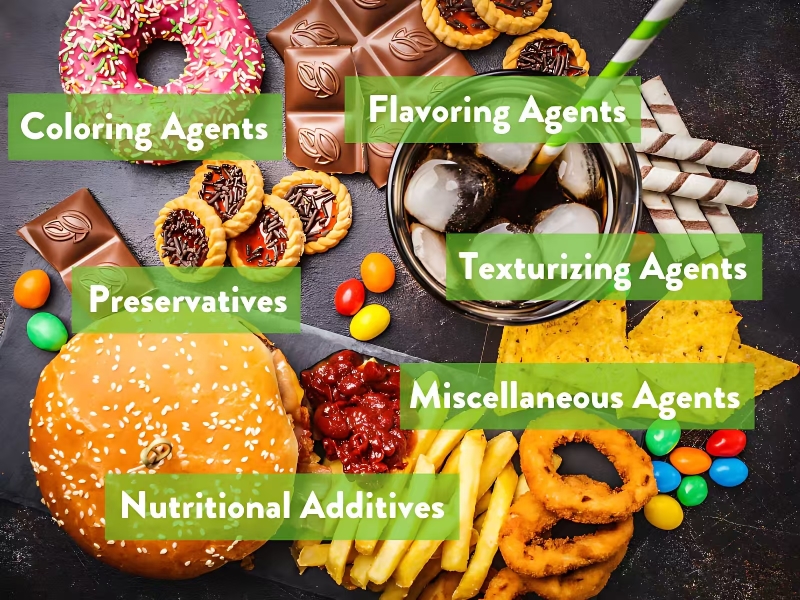How to Look at Food Additives Correctly?
What are Food Additives
Food additives refer to chemical synthetic or natural substances added to food to improve food quality, color, aroma, taste, as well as for anti - corrosion and processing technological needs.
Classification of Food Additives
Food additives can be divided into three categories: natural extracts, substances obtained by fermentation methods, and pure chemical synthetic substances. Most natural food additives belong to the first two categories, usually using substances existing in nature as raw materials.
Functions of Food Additives
Extend the shelf - life of food: Food is prone to spoilage due to factors such as microorganisms and oxidation during production, storage, and transportation.
Improve the sensory quality of food: The color, aroma, and taste of food are important factors attracting consumers.
Facilitate food processing and production: In the food processing process, some additives can play a role in improving processing performance.
Retain the nutritional components of food: Certain food additives can also protect the nutritional components in food and reduce their loss during processing and storage.
Common Misconceptions about Food Additives
"Zero - addition" means safer: "Zero - addition" does not mean that the food is absolutely free of any additives. In some cases, not using additives may cause the food to spoil more easily, increasing the food safety risk. In addition, even if there are no artificially synthesized additives in the food, there may be naturally occurring similar substances, such as benzoic acid in fruits.
All food additives are harmful: Food additives are safe when used within the specified scope and dosage. Many food additives are excreted from the body during the human metabolism process and do not harm health. On the contrary, without food additives, the shelf - life of food will be shortened, and the quality will decline, which may lead to more food waste and food safety problems.
A Correct View of Food Additives
Eliminate fears and misunderstandings about food additives by learning about relevant knowledge, including their types, functions, and safety assessments.
Choose to buy food from regular supermarkets, shopping malls, and other channels. The food sold in these places usually undergoes strict quality inspection and supervision, and the use of food additives in them is more in line with standards.
Maintain a balanced diet structure and consume a variety of foods, reducing reliance on a single food. This can reduce the intake of food additives.

In summary, food additives are an indispensable part of the modern food industry, playing an important role in ensuring food safety, improving food quality, and facilitating food processing. Although there are some misunderstandings among the public about food additives, as long as they are used within a legal and reasonable scope, and undergo strict safety assessment and supervision, food additives are safe and reliable. We should approach food additives with a scientific and rational attitude, and ensure the food safety and health of ourselves and our families through learning relevant knowledge, paying attention to food labels, and choosing legitimate channels to purchase food.
Prev: Why is VAE Emulsion the Preferred Binder for Flexible and Crack-Resistant Sealants?